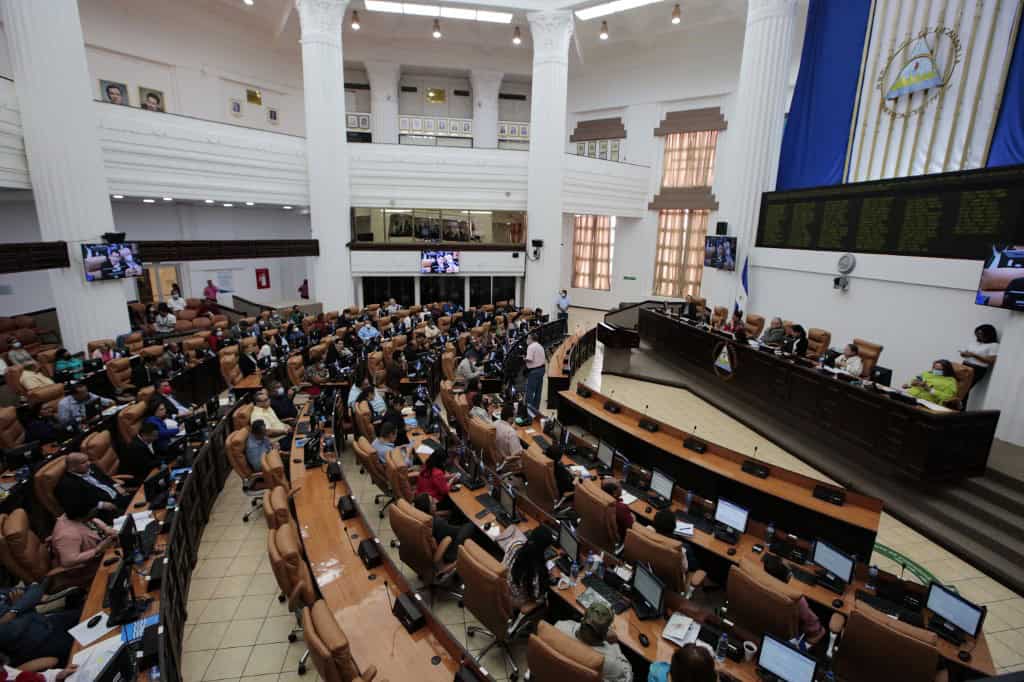On Monday, Nicaragua’s Congress approved a law to impose fines or suspend the operations of companies that enforce international sanctions in the country, such as those adopted by the United States against Daniel Ortega’s government. The government will have the authority to “impose sanctions and fines” and even order the “temporary or permanent suspension” of operations for entities that apply foreign sanctions, according to the text unanimously approved by the parliament, which is dominated by the ruling party.
The law was passed after the National Assembly (AN, legislative) on Friday also unanimously approved a constitutional reform granting absolute power of the state to Ortega and his wife, Rosario Murillo, whose position was elevated from vice president to “co-president.” Ortega, who introduced both initiatives, claims that the law will protect Nicaraguans and their institutions from sanctions. However, analysts warn that it will create significant difficulties for banks and other foreign companies conducting business in Nicaragua.
Nicaraguan analyst Manuel Orozco, of the Inter-American Dialogue, said that this legislation places the country at “high financial risk,” as national banks that comply with the law will risk “sanctions from the U.S. Treasury.” Moreover, non-compliance with the new law will be treated as a criminal offense categorized as “treason,” a crime that carries a penalty of up to 30 years in prison.
Since the anti-government protests of 2018, which the UN estimates resulted in more than 300 deaths, the United States, Canada, and the European Union have imposed sanctions on hundreds of officials and public entities accused of supporting the government in human rights violations. Ruling party legislator Wálmaro Gutiérrez defended the law, arguing that there is no reason for “a directive from a foreign government” to “be enforced in a country other than its country of origin.”
This year, Washington sanctioned two mining companies affiliated with the Nicaraguan government and restricted visas for senior officials of a European charter airline accused of facilitating irregular migration to the United States via Nicaragua. Recently, the State Department restricted visas for 350 members of the Nicaraguan National Police, accusing them of human rights violations.






